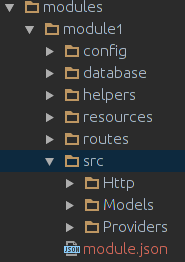dev-master
9999999-devLaravel Module Management
MIT
The Requires
by
 mrabbani
mrabbani
v1.5.6
1.5.6.0Laravel Module Management
MIT
The Requires
by
 mrabbani
mrabbani
v1.5.5
1.5.5.0Laravel Module Management
MIT
The Requires
- php >=7.0.0
- illuminate/console 5.5.*
- illuminate/database 5.5.*
by
 mrabbani
mrabbani
v1.5.4
1.5.4.0Laravel Module Management
MIT
The Requires
- php >=5.6.4
- illuminate/console 5.4.*
- illuminate/database 5.4.*
by
 mrabbani
mrabbani
v1.4
1.4.0.0Laravel Module Management
MIT
The Requires
by
 mrabbani
mrabbani
v1.03
1.03.0.0Laravel Module Management
MIT
The Requires
- php >=5.6.4
- illuminate/console 5.3.*
- illuminate/database 5.3.*
by
 mrabbani
mrabbani
v1.02
1.02.0.0Laravel Module Management
MIT
The Requires
- php >=5.6.4
- illuminate/console 5.3.*
- illuminate/database 5.3.*
by
 mrabbani
mrabbani
v1.01
1.01.0.0Laravel Module Management
The Requires
- php >=5.6.4
- illuminate/console 5.3.*
- illuminate/database 5.3.*
by
 mrabbani
mrabbani
v1.0
1.0.0.0Laravel Module Management
The Requires
- php >=5.6.4
- illuminate/console 5.3.*
- illuminate/database 5.3.*
by
 mrabbani
mrabbani
 Wallogit.com
Wallogit.com
 , (*10)
, (*10)